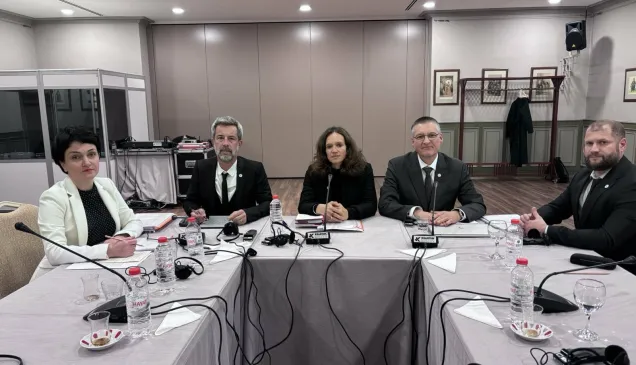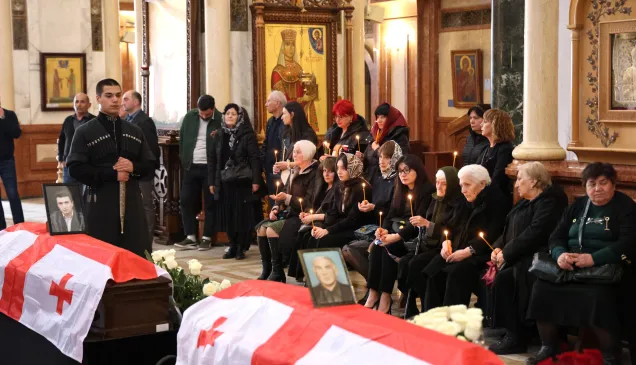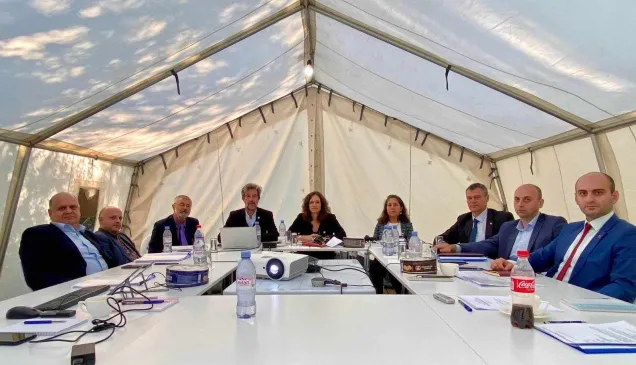Forensic experts make most of lockdown, take up course to improve skills
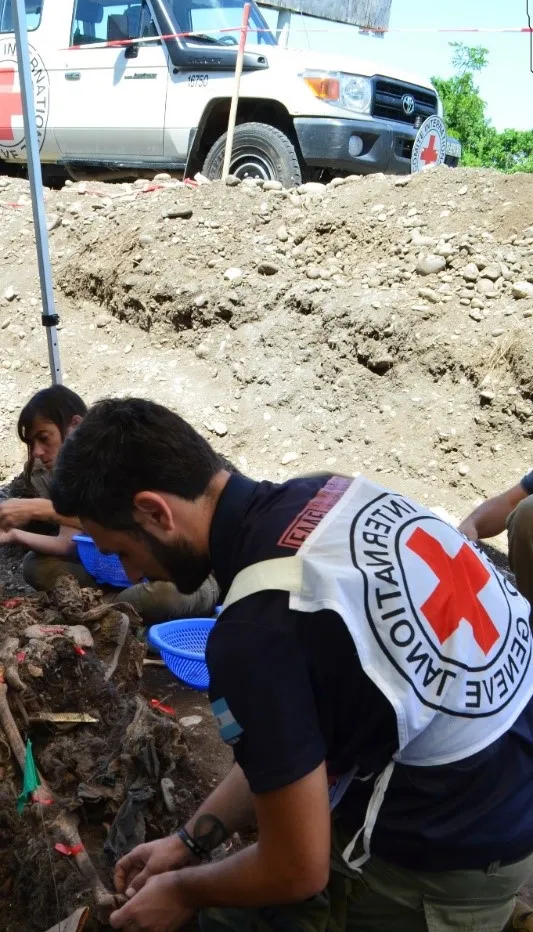
“As an archaeologist I have gained invaluable practical experience with the ICRC in exhuming human remains. The process includes searching for potential burial sites, proper extraction of mortal remains, conducting laboratory analysis to establish gender and age and identifying injuries or pathologies that distinguish a person. Families of missing people have the right to know what happened to their loved ones, to mourn for them and find closure. All our efforts are aimed at giving them that opportunity. I am glad I chose this profession.”
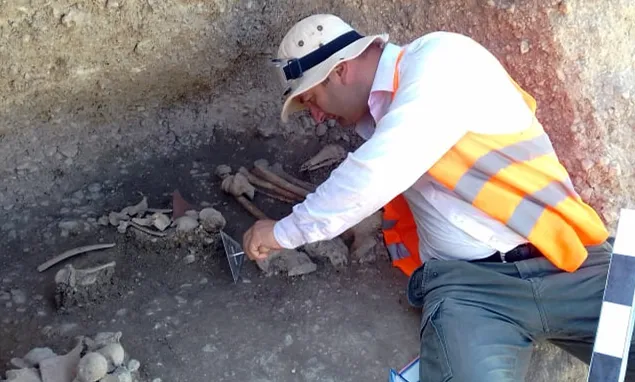
Irakli Anchabadze, Tbilisi
“I had joined the ICRC’s field work in the 2017-2018 period. The variety of training I received then laid the foundation in general anthropological and osteological studies and even English terminology. Because of that I was able to pursue the recent online course, which was more exhaustive studies in the field. I can also deepen my knowledge in future with the material that has been provided.”
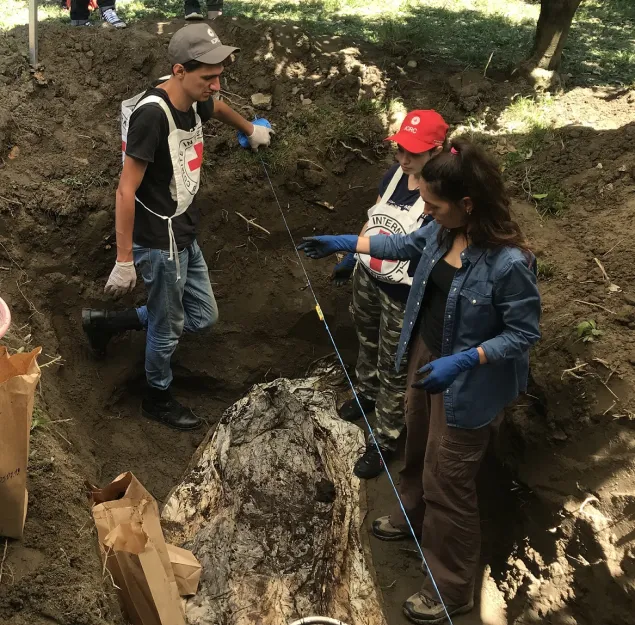
Erik Demurchian, Sukhum/i
“I have learned what team work and patience really are while working in the field. And working in the laboratory has taught me that even the smallest details are significant and can lead to important conclusions. My training has given me great opportunities to gain new skills and knowledge.”
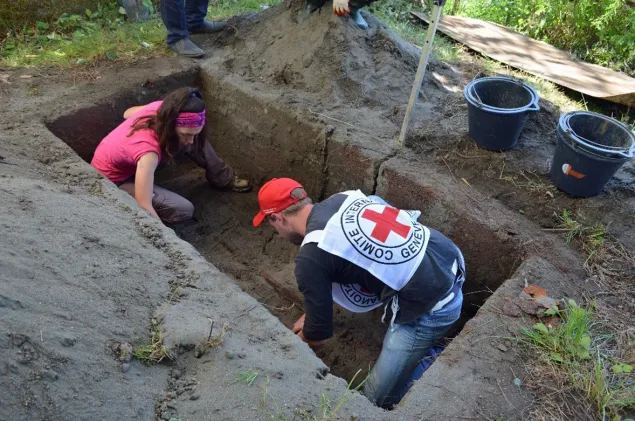
Dmitry Kusii, Sukhum/i
“Archaeology and anthropology were distant subjects for me, a biologist. But after a year of working with the ICRC’s programme related to missing people, I gained a lot of experience in both archaeology and anthropology and was also convinced about the importance of the work we do. My profession gives me the opportunity to help the families of missing people so that they know what happened to their loved ones.”
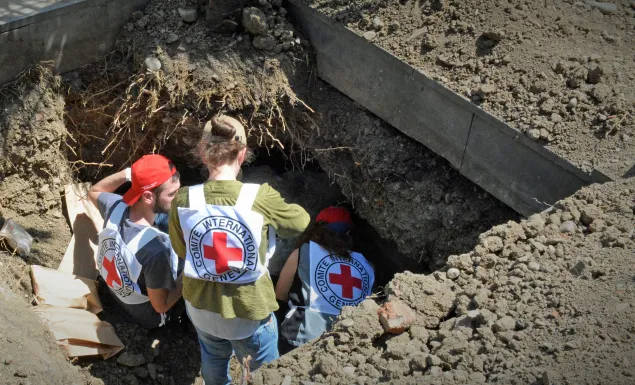
Elguja Lachkepiani, Tbilisi
Photo: Eljuga and other specialists at the exhumation site in Tbilisi.
“It is an honour for me to be a part of the search and identification of the remains of people who went missing during conflict. I have been actively involved with the ICRC since 2013, as it works in cooperation with Levan Samkharauli National Forensic Bureau to identify and hand over the mortal remains of missing people to their families.”
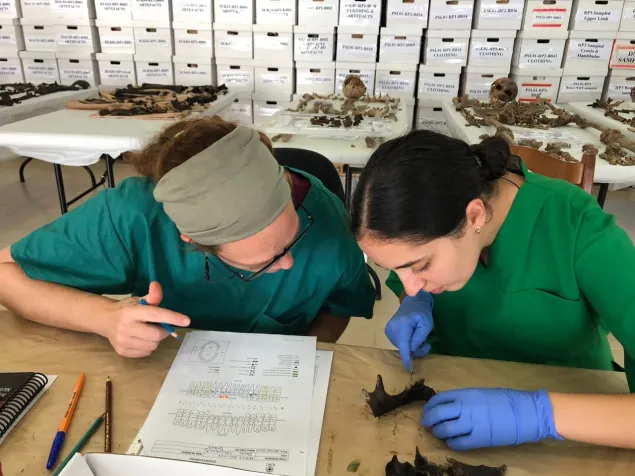
Diana Martirosyan, Sukhum/i
"I was only a medical student when I started working with the ICRC in 2017. It was a life-changing experience for me and I learned a lot about anthropology. It is a very rewarding job as I help families that have lost their relatives and give them the opportunity to end their ambiguity and find closure".
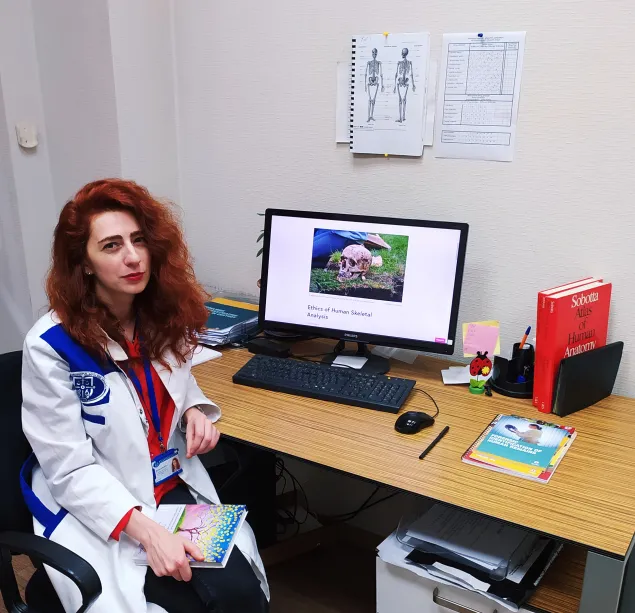
Tinatin Niniashvili, Tbilisi
“I have been helping to identify the remains of missing people since 2013 as a staff member of the Levan Samkharauli National Forensic Bureau, working in close cooperation with the ICRC. My knowledge base was built tremendously by interacting with renowned forensic anthropologists, archaeologists and experts at training programmes organized by the ICRC. The personal experiences that they shared became great lessons for me.”
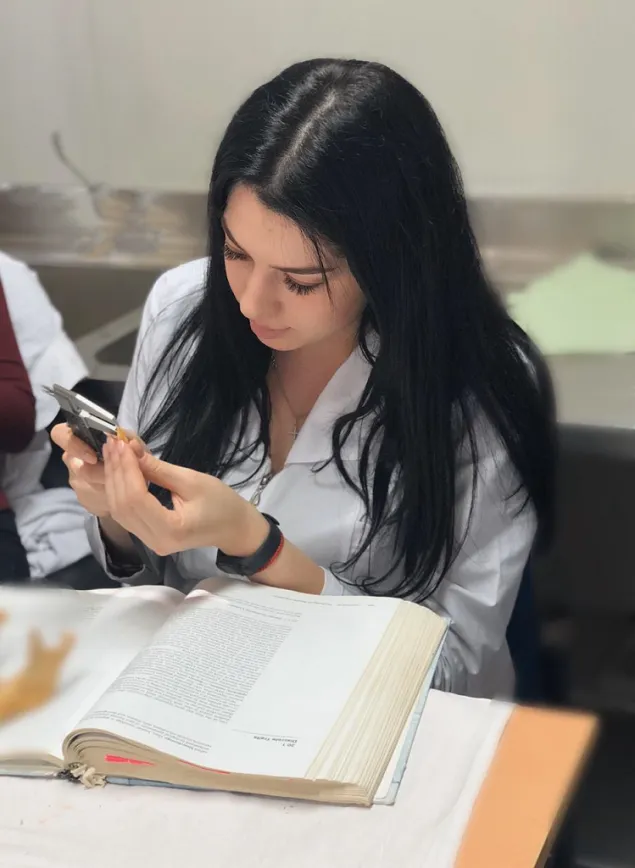
Kamilla Sandzava, Sukhum/i
“I graduated from the biology department of Abkhazian State University. My first encounter with the ICRC was when I was still in college and I attended an awareness session conducted by the organization. Now I am a part of their forensic team. Participating in excavations or exhuming mortal remains or working in the anthropological laboratory is not just a job to me. It means helping, supporting and showing compassion to those who have been waiting for years to hear about their loved ones.”
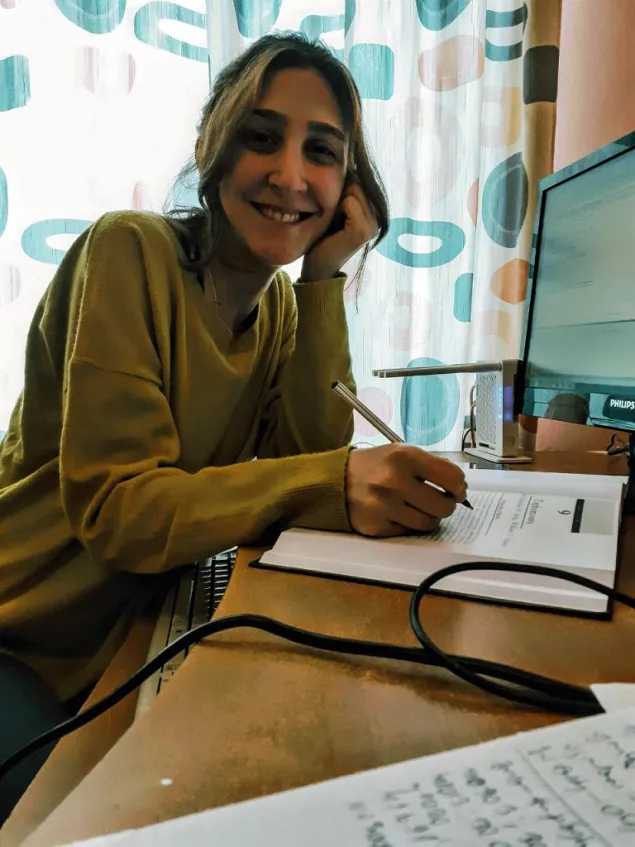
Nino Tavartkiladze, Tbilisi
“I helped in exhumations and laboratory work from 2017 to 2018 as part of an ICRC project. While the field work was similar to my professional experience of archaeological expeditions done over the years, the laboratory work was very new to me because I had never worked with osteological material before. However, I had always been interested in studying the material and thanks to ICRC I got the chance.”
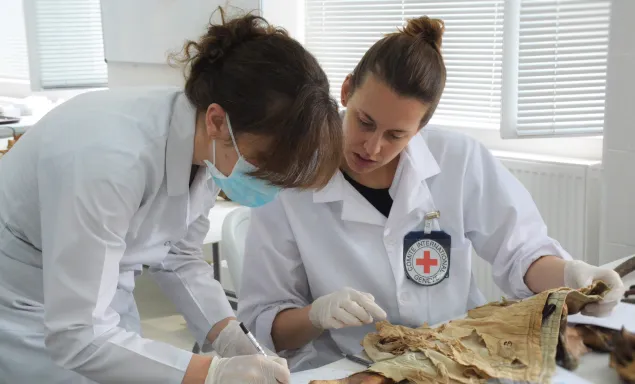
Tea Takniashvili, Tbilisi
Photo: Tea with ICRC expert in National Forensic Bureau laboratory
“The online course in anthropology and archaeology was very interesting. I was familiar with many issues that were addressed because I work in the field of forensic medicine. But the course had demonstrations of each step or action that the ICRC experts take in the field and the laboratory, which made things even more clear for me.”
The ICRC delegation in Georgia has been working to ensure that the search and identification of people who went missing as a result of armed conflicts continues despite the challenges posed by COVID-19. Specialists in the fields of genetics, archaeology and anthropology continue to analyse and reconcile data such as information from burial sites, ante-mortem, post-mortem and genetic data.
Along with these activities, the ICRC helped 13 forensic specialists from the region make efficient use of the lockdown through an online course in forensic archaeology and anthropology. Certified by Durham University, United Kingdom, the six-week course was jointly developed by experts from the Durham and Teesside universities and specialists from the ICRC. Conducted between April and May, the programme used case studies from the field, video lab sessions, interactive 3D models, photographs and podcasts to establish the scientific basis for the exhumation and identification of skeletal remains.
It was designed to help forensic scientists become even more effective in clarifying what happened to missing people by teaching techniques used in anthropology and archaeology. At the same time the training will also be useful for those who deal with legal issues or human rights and want to understand forensic medicine. More than 3,000 people around the world signed up for the course.

